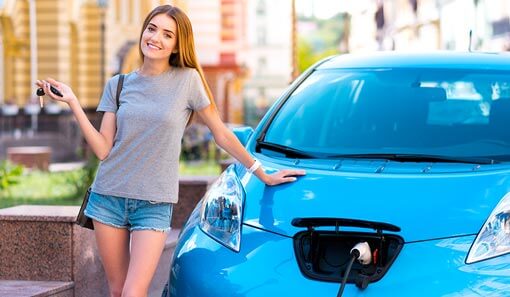Electric Vehicles in the Caribbean

It’s also true that tourists don’t like films of particulate emissions on their rental cars, verandas, etc., and tend to take their vacation dollars elsewhere.
There are a few factors militating in the opposite direction, however:
Land use: the price per acre can be extreme since the supply is so low, and thus utility-scale solar arrays are hard to justify, and
Storms: climate change is bringing us increasingly extreme weather events that tend to rip up solar installations of all types.
Overall, however, the trend towards electrification is definitely bound to continue, and that’s a good thing for all of us.

Craig,
Cheesy little video’s like the one you found on facebook are just plain annoying !
This sort of puerile advocacy makes the task of EV adoption much harder by destroying any credibility for serious people in the EV industry.
There are not 3 million EV cars on the road in 2017 ! The figure was less than 1,000,000. If all types of electric vehicles including buses and PIEV’s, etc are included the figure increases to about 2.8 million, of which about half are in the Peoples Republic of China.
This represents about 0.3 % of the world’s vehicle fleet.
Somewhere around 1999 I began to take an interest in EV technology, mainly because my new wife had such a passion for the environment and asked me to assist an ailing business owned friends which built, serviced and sold specialist EV’s.
Over the next few years I thought small island nations would be an ideal market for EV transport. The conditions seemed ideal.
Firstly, the problems of range anxiety, lost cost gasoline, air-conditioning, gradients, high battery consumption. and refueling problems would be a problem in a small island with no winter. In addition ICE vehicles had problems with spare parts, fuel storage, etc.
My main area of marketing was the South Pacific and Indian oceans. Most of the Islands in the South Pacific are archipelagos with relatively small populations.
Caribbean islands are usually much larger with populations in the millions. ( Cuba 11,489,082,
Haiti 11,112,945 Dominican Republic, 10,882,996 Puerto Rico 3,659,007) .
Craig, you are quite right when you point out hurricane’s etc present a problem for Caribbean and many island nations.
The other and biggest factor is most of these island have relatively low standards of living. The populations live and cook with kerosene or wood. Oil (or coal) are the most essential fuels because these islands are heavily dependent on Air and sea transport.
The more oil usage, the cheaper the transport and infrastructure. Most of the local residents of islands ride small engine motorcycles or scooters. Small pick up trucks are also popular. These vehicles are very cheap to buy and even cheaper to operate.
Wind and solar generation hasn’t caught on in most islands due to a wide range of factors including impracticability, unreliability and cost.
Most island nations are forced to subsidize the cost of Electricity production, resulting in only a relatively small number of families connected to the grid. The economics favour oil and coal fired consumption, although some of the nations produce a sugar supplus which could be converted and used as feul.
Preachy, simplistic little sermons about how easy everything should be, is most irritating. If it’s so easy, the author of the video should invest his money and energy establishing an EV business on the island of his choice.
Just turn up with an order-book, a bunch of solar panels and an EV, and you’re in business! Otherwise, do a little more research (or any) before indulging in such nonsense!
LOL. We agree on something! That video IS cheesy. I just used it as a springboard to make a few points.
If we could find a way to prevent solar panels from being damaged during hurricanes, we could help save them a lot of money and help slow down global warming considerably!